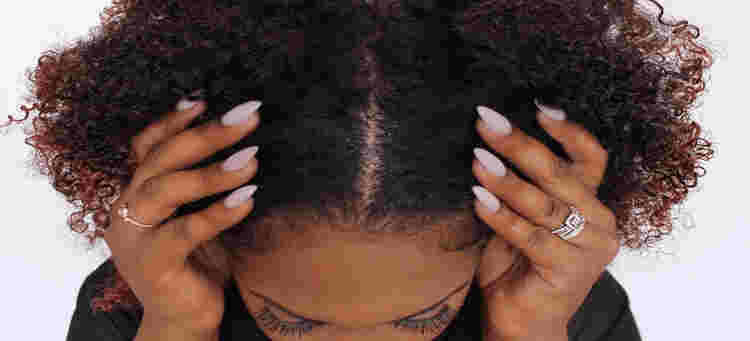People of all ages can get dandruff, which is a common scalp ailment. White or grayish flakes that can also show up in the hair and on garments are what define it. They also appear on the scalp. Dead skin cells that have shed from the scalp are typically what cause these flakes.
Even while it’s not a significant medical condition, dandruff can be uncomfortable and humiliating, which can irritate and cause itching. Fortunately, there are methods and treatments that work well for controlling and getting rid of dandruff.
What Causes Dandruff?
Understanding the causes of dandruff is key to finding the right treatment. The primary factors that contribute to dandruff include:
- Dry Skin: Dry skin is one of the most common causes of dandruff. When your scalp is dry, it can become flaky and start shedding dead skin cells, leading to dandruff.
- Seborrheic Dermatitis: This is a more severe form of dandruff that results in flaky white or yellow scales covering red, oily skin. In addition to the scalp, other parts of the body like the eyebrows, sides of the nose, and behind the ears can also be affected by seborrheic dermatitis.
- Malassezia: Most adult humans have malassezia, a form of yeast-like fungus, on their scalps. This fungus may cause excessive skin cell turnover and scalp irritation in certain individuals, which can result in dandruff.
- Sensitivity to Hair Products: Some people may be sensitive to certain ingredients in hair care products, such as shampoos, conditioners, or styling products. This sensitivity can cause scalp irritation and dandruff.
- Infrequent Shampooing: If you don’t wash your hair regularly, oil and skin cells can build up on your scalp, leading to dandruff.
How to Treat Dandruff
Even though dandruff might be bothersome, it can be controlled with the appropriate methods. Here are a few efficient methods for dandruff treatment and prevention:
- Use an Anti-Dandruff Shampoo: The first line of defense against dandruff is an over-the-counter anti-dandruff shampoo. These shampoos contain active ingredients such as zinc pyrithione, selenium sulfide, ketoconazole, or coal tar, which help to reduce the fungus and alleviate dandruff. It’s important to use these shampoos as directed and regularly to see results.
- Wash Your Hair Regularly: Keeping your scalp clean is essential in controlling dandruff. Washing your hair regularly helps to remove excess oil, dead skin cells, and dandruff flakes. However, avoid overwashing, as this can dry out your scalp and worsen the problem.
- Moisturize Your Scalp: If dry skin is the cause of your dandruff, using a gentle, moisturizing shampoo and conditioner can help. Look for products that are sulfate-free and contain natural oils or ingredients like aloe vera, which can soothe and hydrate the scalp.
- Tea Tree Oil: Tea tree oil is a popular natural treatment for dandruff because of its antifungal and anti-inflammatory qualities. You can use a shampoo that already contains tea tree oil or add a few drops of tea tree oil to your usual shampoo.
- Apple Cider Vinegar: Apple cider vinegar is believed to help reduce the growth of Malassezia fungus due to its acidic nature. Mix equal parts of apple cider vinegar and water, apply it to your scalp, and leave it on for 15 minutes before rinsing. This can help restore the pH balance of your scalp and reduce dandruff.
- Aloe Vera: Aloe vera has soothing properties that can help alleviate the itching and irritation associated with dandruff. Apply fresh aloe vera gel directly to your scalp and leave it on for 30 minutes before washing it off.
- Maintain a Healthy Diet: What you eat can also impact the health of your scalp. A diet rich in vitamins and minerals, particularly zinc, B vitamins, and omega-3 fatty acids, can help keep your scalp healthy and reduce dandruff.
- Reduce Stress: Stress can exacerbate dandruff by weakening your immune system and making your scalp more susceptible to irritation. Practicing stress-reducing techniques like meditation, exercise, and deep breathing can help manage dandruff.
- Avoid Hair Styling Products: Certain hair styling products, such as gels, mousses, and sprays, can build up on your scalp and contribute to dandruff. If you’re prone to dandruff, try to minimize your use of these products.
Also Read: Health Benefits Of Taameawu: Bryophyllum Pinnatum
Frequently Asked Questions (FAQs)
1. Can dandruff be cured permanently? Dandruff can be managed and controlled, but it may not be cured permanently, especially if it’s caused by chronic conditions like seborrheic dermatitis. Regular treatment and scalp care can help keep dandruff at bay.
2. How often should I use anti-dandruff shampoo? It depends on the severity of your dandruff. For mild dandruff, using an anti-dandruff shampoo two to three times a week may be sufficient. For more severe cases, you might need to use it every time you wash your hair until the dandruff is under control.
Related: Aloe Vera for a beautiful, shiny, and healthy hair
3. Can dandruff lead to hair loss? Dandruff itself doesn’t directly cause hair loss. However, severe itching and scratching can damage the hair follicles, leading to temporary hair loss. Treating dandruff can help prevent this issue.
4. Is dandruff contagious? No, dandruff is not contagious. It cannot be spread from person to person through physical contact or sharing personal items.
5. Should I avoid oiling my hair if I have dandruff? For people who have dandruff due to fungal overgrowth or seborrheic dermatitis, oiling the hair might not be the best idea as it might exacerbate the issue. However, modest oiling of the scalp with natural oils will help hydrate it if your dandruff is caused by dry skin.
In summary, dandruff is treatable with the right care and attention for the scalp, even though it can be a bothersome and chronic problem. You can successfully manage dandruff and have a healthy, flake-free scalp by comprehending the underlying reasons and implementing the appropriate measures.












